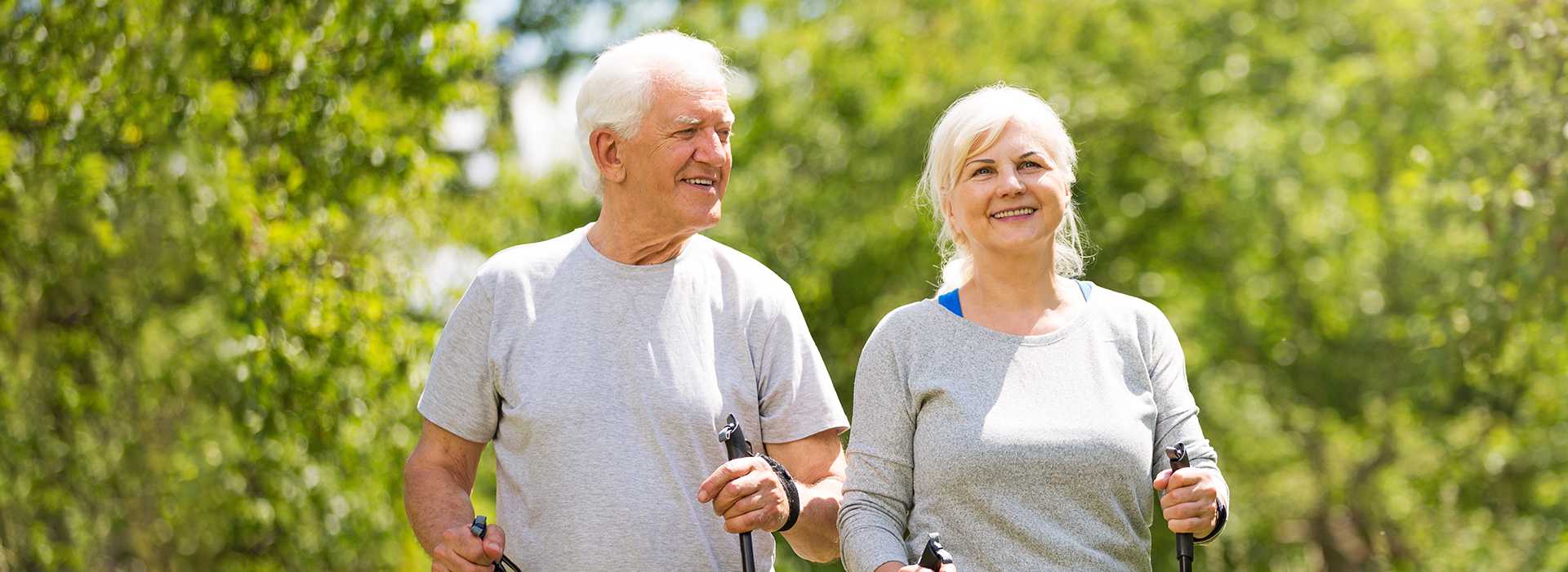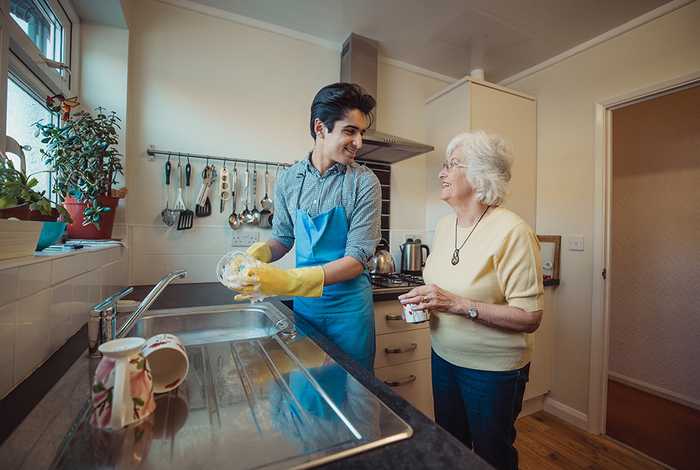Posted by Rachel Bashford
How are green concerns being addressed in senior living?

Read on for more information about:
1. How care providers are responding to Plastic Free July.
2. ARCO’s ‘Grey Going Green’ report.
3. Detail on the report’s 4 focus points.
4. Autumna’s upcoming green accreditation for care providers.
What is Plastic Free July?
Plastic Free July is a global environmental movement, focusing on the reduction, reuse and recycling of plastic in all of our communities. It was created and propelled into the international spotlight by the Plastic Free Foundation, a not-for-profit organisation originating in Australia.
The aim of Plastic Free July is to raise awareness on a global scale around the consumption of single-use plastics in order to reduce the throw-away mentality surrounding this type of plastic.
The Foundation report that they have over 100 million participants in over 190 countries taking part, with the purpose being to refuse to buy or use single-use plastics in shops and leisure areas.
This video from the Plastic Free Foundation describes how Plastic Free July works in practice.
Why is Plastic Free July important to elder care providers and those delivering retirement living?
It’s interesting to note that more care facilities and retirement communities than ever are responding to their use of plastics and considering ways to cut back to protect the environment.
British care facilities are a key focus for sustainability as the older population grows in number and more care homes and retirement facilities are looking after increasing numbers of seniors.
Sustainable change not only benefits the facility in terms of cost efficiencies, but with a great number of the over-65s concerned about impacts on the climate, it seems to be in line with what a large majority of residents of care homes and retirement villages would like to see occur.
In fact, the ONS reported in November 2021 that 75% of adults in Great Britain are worried about the impacts of climate change. Although for many care homes and retirement communities it can be a challenge to reduce plastic waste as a result of the pandemic with mask wearing and PPE, there are some that are striding ahead with policies to decrease their use of single-use plastics.
One example is Inspired Villages, who outlined their ecological policies in their Inspired Impact Report in 2021. The company gives a range of examples of their work on biodiversity, including working with supply chains to reduce packaging waste, including single-use plastics. There is also a commitment to on-site food production, which Inspired Villages feel will also contribute to improved plastic management.
Another care provider, Hallmark Care Homes, has included plastic waste reduction as part of their sustainability vision. In February 2022, they announced a partnership with Biohygiene to create a significant move towards sustainability. They report that,
“We have introduced BioHygiene’s carbon-neutral, non-hazardous products in a bid to reduce carbon emissions and plastic waste across the board…The change will result in reusable, recyclable PCR bottles that enable us to reduce our plastic waste up to 37%.”
What Is Arco’s ‘Grey Going Green’ Report 2022?
In this recent publication, Arco, as the main body representing integrated retirement communities, outlines the steps that care communities are taking and can enact to protect the environment for future generations.
A key word to describe their vision for retirement communities is ‘longevity’, both for residents and for the planet. As the report outlines, there are around 70,000 homes for older people in the UK, with rapid growth predicted over the next 10 years. Arco believes that the sector has a vital role in working with other industries to move the UK towards net zero carbon.
As well as taking steps to reduce the care facility’s carbon footprint, there are often quite marked cost efficiencies that are an added bonus for members of the sector.
There is a clear path to follow stated in the report that can help communities reduce their carbon footprint. Firstly, getting all stakeholders on board and having a consistent commitment shared by everyone involved is essential in planning for the future.
Secondly, Arco recommend taking advice from a professional body to help measure and manage a facility’s current carbon footprint. There are many organisations that can help, including the Carbon Trust with its SME Carbon Footprint calculator.
Following this, the next stage in Arco’s plan would be to set reasonable and achievable targets for decarbonisation and ensure these are ‘consistent’ with the 1.5 degree pathway to reach net zero.
Finally, in order to meet these targets, Arco confirms how important it is for any facility involved in senior living to concentrate on actions that enable the removal of carbon from their ‘operations and supply chain’.
In this video from the National Grid UK, there is a clear explanation of what net zero actually is.
What Are The Arco Report’s 4 Focus Points?
The ‘Grey Going Green’ report highlights four important areas that retirement communities can centre their net zero work around. These not only generate carbon savings, according to Arco, but also have the benefits of creating cost savings for retirement living facilities at the same time.
Energy
Energy efficiency will undoubtedly have a major contribution towards a care facility or retirement community’s ability to reach net zero. There are independent organisations that can support care homes or retirement communities to reduce carbon use, such as the charity, BRE Trust. The organisation is a government sponsored scheme which focuses on research and standards to make the built environment a better place.
They, and similar organisations, can recommend actions that will help care facilities or retirement communities to reduce energy use. There are a wide range of suggestions available, from cooking vessels with direct steam injection to speed up cooking times and decrease energy consumption to the installation of new, efficient boilers.
James Eley, Marketing Manager at Athena Care Homes, says they are, “Investigating additional ways we can develop our sustainability initiatives. We’ve already looked hard at energy efficiency measures we can take around our homes; everything from composting for our gardening clubs, through to energy efficient sensors and solar panels.”
In their roadmap to net zero, Inspired Villages have committed to all construction energy to be procured from renewable sources, plus they also have a pledge to have all villages built to net zero by 2030.
Travel And Logistics
Another important aspect to strengthening environmental commitments is the change that can be made around travel and fuel use. Arco relates that the health and social care sector were responsible for 5% of all road journeys pre-pandemic. As a result, the Arco report emphasises how electric vehicles can help reduce emissions and improve cost savings.
In light of this, Inspired Villages illustrates how they plan to create 10% of electric charging ports in all of their retirement villages in their 2021 report. Athena Care Homes are using local suppliers in growing numbers to increase sustainability and reduce food miles.
Food And Agriculture
The third area where ecological benefits can be created is through the production, movement and preparation of food. It has been regularly stated in the media over recent years that the agricultural sector, with the production of red meat and dairy in particular, creates significant carbon challenges.
Arco advises that smart menu planning, in conjunction with supplier support, can help produce real carbon and energy savings.
Waste
Waste, specifically plastic waste, presents a colossal obstacle in terms of enabling the effective management and improved cleanliness of our seas, oceans and landscape in general.
The WWF (World Wildlife Foundation) have said that the amount of plastic in the ocean is expected to double in the next 15 years, and by 2050 there could be more plastic (in terms of weight) than fish in the sea.
This video from the WWF reveals how plastic pollution is increasingly causing damaging problems for the ecosystem and our wildlife.
Inspired Villages has pledged to install grey water systems to reduce water waste and to prioritise the recycling or re-use of materials in construction and refurbishment.
Other companies, such as Hallmark Care Homes, plan to reduce waste through their improvement of cleaning supplies and the removal of hazardous chemicals from their cleaning supply chain.
What is Autumna’s 'Go Green' Accreditation?
Autumna are set to announce a new Go Green accreditation for care providers. The idea behind this is to produce a roadmap with guides that providers can follow to improve their green initiatives with some suggestion of costs.
Sitting beside this idea is the commitment to build a strong action group comprising of care providers and experts on sustainability that can help shape the Go Green accreditation for the care/retirement living sector, while developing high-level categories which can incorporate all green initiatives.
There will be 4 main categories as part of the accreditation:
- Carbon reduction
- Energy efficiency
- Renewable energy
- At home projects
Autumna’s Go Green accreditation allows providers to evidence their commitment to future sustainability for existing or future residents and stakeholders. There will also be the opportunity for industry partners to collaborate as experts, via sponsorship, to support the evolution of the accreditation and further strengthen its use across the sector.
Further details about the Go Green accreditation will be published shortly.
How can I find information about later living care and support in retirement?
Growing numbers of people are using Autumna's online directory of over 26,000 care providers and retirement living operators, to discover their best options for later life.
If you need some help, why not complete this short form and let us know exactly what later life needs are important to you? The Autumna advice line team will then filter your search and send you a shortlist of those care providers that can help.
If you'd prefer to speak to us, call our Advice Line on 01892 335 330. The line is open seven days a week. (8:30am - 5:30pm Mon-Fri, 10am - 5pm Sat, 10am - 4pm Sun).
Alternatively email us here: info@autumna.co.uk
Other articles to read
Autumna Blog

Older Persons Care Advice
How to revoke a power of attorney
February 21st, 2025
Wondering how to revoke a power of attorney (PoA)? The process depends on the type of PoA. In our blog, we will guide you step-by-step through the process.

Older Persons Care Advice
Senior assisted living made simple
February 19th, 2025
Explore senior assisted living in the UK—find out what it includes, who qualifies, and how to choose the right provider for your care needs.

Older Persons Care Advice
What rights do residents have in a care home?
February 18th, 2025
What rights do residents have in a care home? From dignity and safety to fair contracts, know your legal protections before choosing a care home. Learn more!






